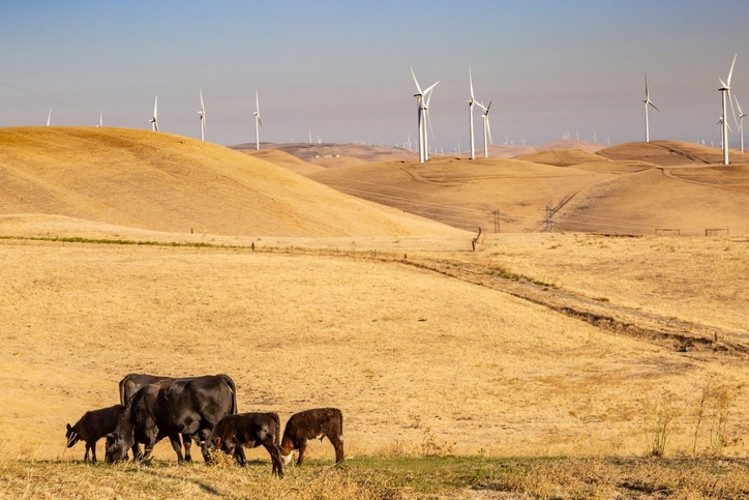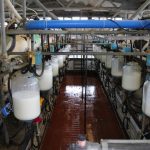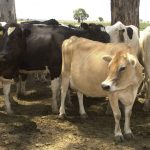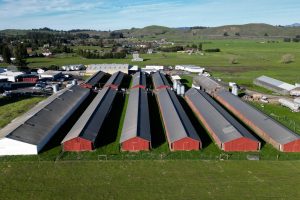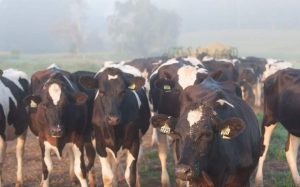
The MOU, which formalizes a relationship that began in 2012, was announced during the fall meeting of the Dairy Sustainability Alliance. The MOU allows the EPA to participate as a member of the Alliance, which consists of more than 130 companies and organizations that collaborate on issues affecting the US dairy industry, accelerate progress toward shared sustainability goals and contribute to the industry’s long-term viability.
“This MOU is significant as it indicates a recognition of US dairy’s leadership in environmental stewardship and brings greater support for creating a sustainable future that is economically viable for U.S. dairy farmers and the dairy community,” Innovation Center for U.S. Dairy president Barbara O’Brien said.
“The MOU will explore mutually beneficial opportunities for dairy farms of all sizes, geographies and practices to gain benefits from EPA resources, including research grants, educational training materials and data.”
The Alliance meeting, with more than 400 registrants across the dairy value chain, featured updates on ongoing initiatives to inform and share progress toward the industry’s collective 2050 environmental stewardship goals.
This included a panel featuring representatives from The Nature Conservancy and Unilever, which explored how dairy farms can find economically viable ways to increase habitat and support ecosystem health.
There was also a discussion led by Dr Frank Mitloehner, professor and air quality specialist and director of CLEAR Center at University of California, Davis, who addressed a modified metric for quantifying the global warming potential of short-lived emissions, such as methane, more accurately.
Representatives from Land O’Lakes, Great Lakes Cheese and Schreiber Foods also shared insights and lessons learned from efforts to address packaging waste and identify future sustainable innovations.
Another session focused on how COVID-19 has impacted the workplace. Kevin Wulf, who works at Riverview, LLP’s facility in Arizona, said the implementation of safety protocols, such as wearing masks, social distancing, checking temperatures and access to hand sanitizers, were effective in the company not having COVID-19-related illnesses.
“We did not see the usual spike in other illnesses because of the protocols, which was a positive in a time of negativity,” Wulf said.
“They are probably here to stay even after COVID leaves.”
Beth Mielke, a plant manager with Kraft Heinz’s cream cheese facility in Wisconsin, said while her team faced some illnesses, she also saw a spirit of camaraderie take over.
“Because we had an increase in absenteeism, our folks have been more willing to cross train and fill the gaps,” she said.
“People understand they want to keep things moving, they know this is their livelihood.”
Wulf said because dairy and agriculture in general were deemed essential, it “sends a strong message that we are a vital piece of our economy and our society.”
But he also looks forward to a time when life returns to normal.
“We would like to get back to in-person meetings as quickly as possible so we can keep our culture and keep the connection we have between each other,” he said. “We feel relationships are best built person to person. Even if you’re at a social distance, you can feel more connection than when you’re screen to screen.”
DMI CEO Tom Gallagher concluded the meeting with a look to the future amid a constantly changing landscape, saying “unprecedented change means unprecedented opportunity.”
He spoke of the checkoff-led “Dairy 2030” plan that has engaged teams of futurists, academia and leaders from within and outside the dairy industry to take a holistic look at how people will consume food and information 10 years from now, and the steps dairy can take today to ensure relevance and success.
He said consumers, especially younger generations, have increased expectations related to a company’s or industry’s commitment to sustainability, and that has been heightened by COVID-19.
“I think sustainability for Gen Z will be the same level of entry fee that taste, price and accessibility are,” he said.
“It is real, and Gen Z will punish companies that they don’t believe are sustainable and will reward those that are. I see nothing but opportunity arising from sustainability as long as we’re proactive and take the actions needed to tell our story and make sure sustainability is profitable for farmers and others in the value chain.”
Gallagher acknowledged the work already being done by the collective industry and efforts led by the Innovation Center for U.S. Dairy to align the industry around these efforts.
“We’re not starting from scratch with the work we have done,” he said.
“We still have a long way to go to get to carbon neutral and for sustainability to become profitable for every farmer in this country, but we are so far down the road.
“This is about doing the right thing – something that farmers and the industry have always done – and builds the pathway that enables further and widespread progress.”
